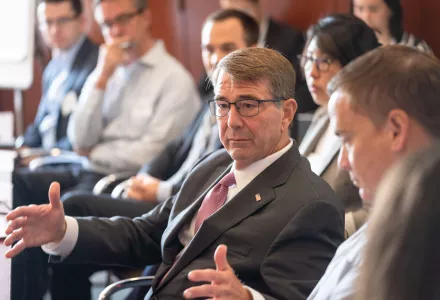
The United States Congress is known as one of the most-advised bodies in the world. Members of Congress can connect with the world’s experts in groundbreaking fields by asking for policy briefs or inviting them to speak at committee hearings; they can task august bodies like the National Academies to conduct deep research into a specific topic.
And yet, when it comes to many emerging technologies, Congress has not shown that it has the necessary capacity and expertise to fully exercise its constitutional duties in regulating tech. While members of Congress in both chambers often produce thoughtful legislation on established science and technology issues, in legislation and high-profile hearings, Congress has appeared unprepared to reckon with emerging technologies and their effects on society.
The Technology and Public Purpose (TAPP) Project, headed by Laura Manley, conducted interviews, surveys, focus groups, and secondary research to understand how Congress can simultaneously be one of the world’s most advised bodies and lack the capacity to fully engage with emerging technology issues.
The report, Building a 21st Century Congress: Improving Congress’s Science and Technology Expertise, found that at the core of the problem is a divide between what Congress can absorb and what information it receives. Internally, Congress has not given itself the resources needed to efficiently and effectively absorb new information—particularly on complex S&T topics. Externally, while Congress is inundated with information, it often does not have information that fits its needs.
To address this divide, the report suggests four major actions that can be taken to bridge the science and technology expertise gap in Congress. First, Congress should hire more scientists and technologists to work in personal offices and on committees. Second, Congress should work with academia, think tanks, and foundations to build pathways for scientists and technologists to work on Capitol Hill. Third, Congress should invest in itself by, among other things, increasing committee and support agency budgets. Finally, external resource providers should tailor their expertise specifically for policymaker use.
The TAPP Project team will meet with policymakers, think tank leaders, and others in the months ahead to discuss findings from the report. The team will also conduct additional research into pathways for scientists and technologists to serve in the legislative branch.
Read the full report at belfercenter.org/CongressSci/Tech
"Bridging Science’s Science/Technology Expertise Gap." Belfer Center Newsletter, Belfer Center for Science and International Affairs, Harvard Kennedy School. (Fall/Winter 2019-2020).




